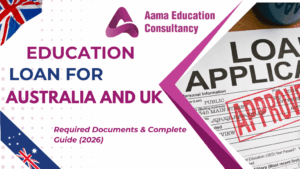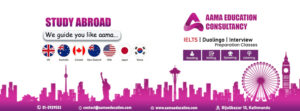Module 1: Overview of the UK Education System
- Structure of UK Education
- Undergraduate:
- Bachelor’s Degrees: Typically, 3 years (4 in Scotland).
- Foundation Years: 1-year preparatory programs for students who don’t meet direct entry requirements.
- Sandwich Degrees: 4-year programs with a 1-year work placement.
- Postgraduate:
- Taught Master’s: 1 year (e.g., MA, MSc).
- Research Master’s: 2 years (e.g., MRes, MPhil).
- Doctorate (PhD): 3–4 years.
- Vocational Education:
- BTECs: Practical, career-focused qualifications.
- Apprenticeships: Combine work and study.
- Bachelor’s Degrees: Typically, 3 years (4 in Scotland).
- Key Institutions
- Russell Group: 24 research-intensive universities (e.g., Oxford, Cambridge, Imperial College London).
- Post-92 Universities: Focus on vocational and applied learning.
- Further Education Colleges: Offer diplomas, foundation degrees, and pathway programs.
Module 2: Admissions Process
- Undergraduate Admissions (UCAS)
- UCAS Application:
- Deadlines:
- October 15: Oxford/Cambridge and most Medicine/Dentistry/Veterinary programs.
- January 31: Majority of courses.
- Components:
- Personal Statement (4,000 characters).
- Academic References.
- Predicted Grades.
- Offers:
- Conditional: Requires meeting exam grades.
- Unconditional: No further requirements.
- Deadlines:
- Postgraduate Admissions
- Direct Applications: Most universities use their own portals.
- Requirements:
- Bachelor’s degree (2:1 or equivalent for competitive programs).
- Requirements:
- Statement of Purpose (SOP).
- References (academic/professional).
- Portfolio (for creative fields).
- References (academic/professional).
- English Language Requirements
- Accepted Tests:
- IELTS (most common, minimum 6.0–7.5).
- TOEFL (90–110).
- PTE Academic (58–75).
- Exemptions: Nationals of majority-English-speaking countries (e.g., USA, Canada, Australia).
- IELTS (most common, minimum 6.0–7.5).
Module 3: UK Student Visa (Student Route Visa)
- Key Requirements
- CAS (Confirmation of Acceptance for Studies): Issued by the university after admission.
- Financial Proof:
- London: £1,334/month (for courses ≤9 months).
- Outside London: £1,023/month.
- Must show funds for 28 consecutive days.
- Healthcare Surcharge: £470/year (covers NHS access).
- Financial Proof:
- Visa Application Process
- Receive CAS from the university.
- Pay visa fee (£490 for applications outside the UK).
- Submit biometrics and documents (passport, financial proof, TB test if applicable).
- Decision within 3–6 weeks.
- Work Rights
- During Studies:
- 20 hours/week (term time).
- Full-time during holidays.
- Dependents:
- Allowed only for postgraduate (Master’s/PhD) students.
- Dependents can work full-time.
- 20 hours/week (term time).
Module 4: Post-Study Opportunities
- Graduate Route Visa
- Duration:
- 2 years for Bachelor’s/Master’s graduates.
- 3 years for PhD graduates.
- Requirements:
- Degree from a UK institution with a Track Record of Compliance.
- No job offer or sponsorship needed.
- Transitioning to Work Visas
- Skilled Worker Visa:
- Requires a job offer from a UK employer with a sponsorship license.
- Minimum salary: £26,200 (or the “going rate” for the role).
- High Potential Individual (HPI) Visa:
- For graduates of top global universities (outside the UK).
- Valid for 2–3 years.
- Requires a job offer from a UK employer with a sponsorship license.
Module 5: Financial Planning
- Tuition Fees
- Undergraduate: £10,000–£38,000/year (varies by course and university).
- Postgraduate: £15,000–£45,000/year.
- Scholarships
- Chevening Scholarships: Fully funded for Master’s students.
- Commonwealth Scholarships: For students from Commonwealth countries.
- University-specific Scholarships: E.g., Clarendon Fund (Oxford), Gates Cambridge.
Module 6: Cultural Adaptation
- Academic Culture
- Independent Learning: Emphasis on self-directed study.
- Assessment: Mix of exams, essays, and group projects.
- Term Dates: 3 terms (Autumn, Spring, Summer).
- Social Integration
- Student Societies: Over 400 clubs at most universities.
- Accommodation: Halls of residence vs. private rentals.
- Healthcare: Register with a GP (General Practitioner) upon arrival.
Module 7: Ethical & Legal Compliance
- Agent Responsibilities:
- Avoid misrepresentation of programs/visa rules.
- Disclose commissions to students (ICEF standards).
- Avoiding Scams: Verify university accreditation via the Office for Students (OfS).
- Avoid misrepresentation of programs/visa rules.
Quiz: Test Your UK Knowledge
- What is the minimum financial proof required monthly for a Student Route Visa outside London?
- £800
- £1,023
- £1,334
- £2,000
- True or False: Dependents of undergraduate students can work full-time in the UK.
- Which visa allows graduates to stay in the UK for 2–3 years without employer sponsorship?
- Skilled Worker Visa
- Graduate Route Visa
- HPI Visa
- Tier 4 Visa
Answers:
- b) £1,023
- False (Dependents only allowed for postgraduate students).
- b) Graduate Route Visa




